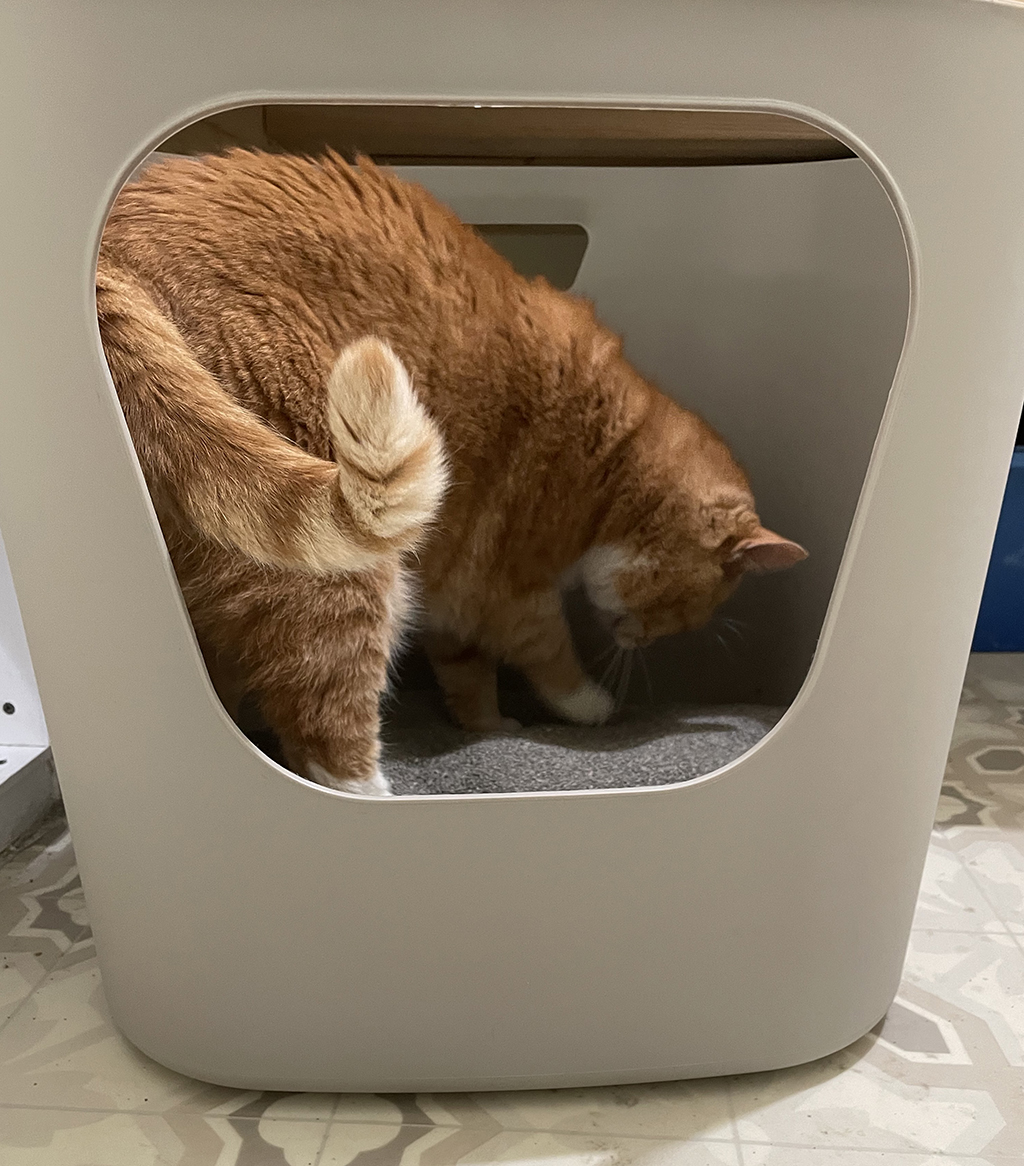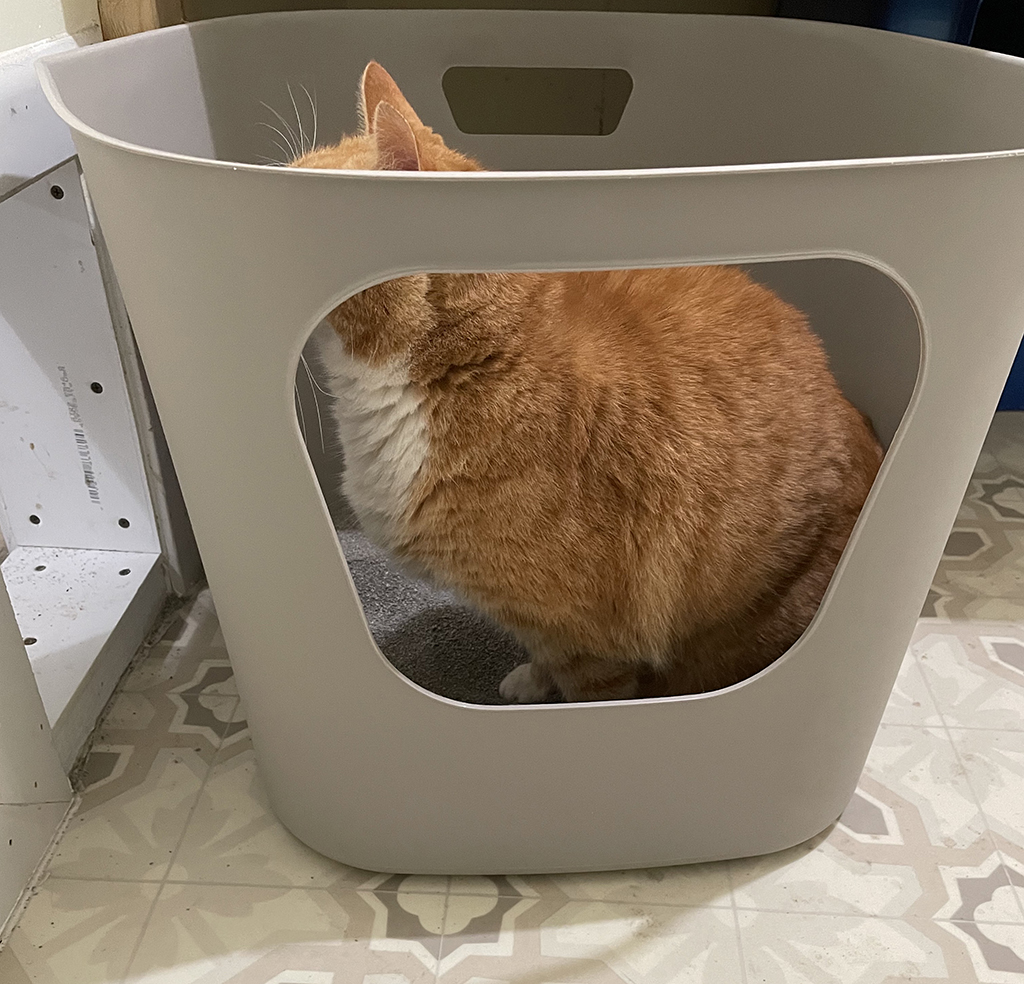Cats can develop litter box problems for various reasons. They can develop because of illness, stress, cat conflicts, dislike of litter type or placement of the litter box, or simply because a cat owner is too lax with the litter box cleaning. Some cats may stop using the box altogether; some might use it for urination or defecation but not for both, while others may eliminate both in and out of their boxes. Once a cat avoids the litter box for whatever reason, their avoidance can become a chronic problem. The cat may develop a preference for eliminating on other surfaces, such as your clothes, bed, rugs, carpets, or couch. This preference becomes a behavior pattern that needs to be broken through training.
The best approach to dealing with litter box issues is to stop them from developing in the first place. Most litter box issues that are not directly related to health issues, such as kidney stones or urinary tract infections, are created by humans. They are caused by lazy cleaning, an insufficient amount of litter in the box, too much litter in the box, or a litter box that is too small, covered, or difficult to get to in time. Cats experience their world primarily through their nose. Their sense of smell is much better than that of a human being, and they refuse to go in a dirty environment. Some cat owners will only scoop the litter box when it starts to smell. Such lack of cleaning is cat cruelty. When a litter box smells to you, it stinks to your cat! It is also important to note that the covered or disguised litter boxes you can buy in pet stores were invented to accommodate human sensitivities. Cats prefer to go out in the open, where they have a clear view of any approaching dangers. Changing litter too often or using litter with a strong, chemical odor is also not a good idea.


